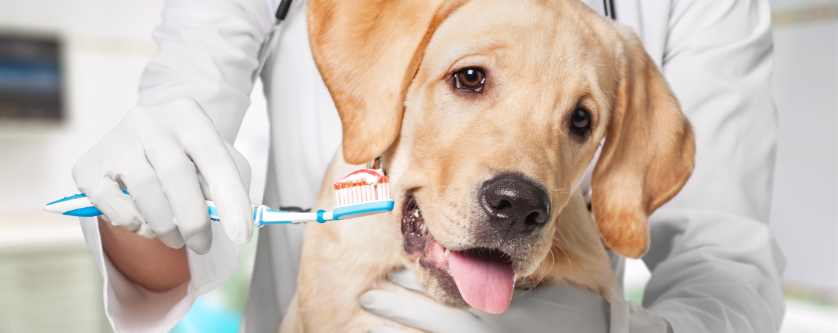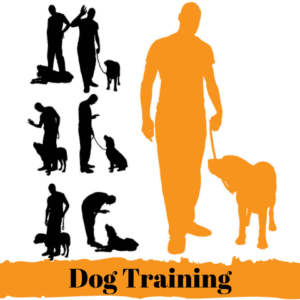Bad breath in dogs is a common problem and often overlooked, but it can be a sign of a serious underlying problem. Although it is not unusual for dogs to have little odor, if you notice a strong unpleasant smell, you need to do something about it.
Why does my dog’s breath smell rotten?
Bad breath, also called halitosis, can be due to various reasons.
Periodontal disease
The most common cause of bad breath in dogs is periodontal disease. If teeth are not cleaned regularly, plaque can build up, and this can lead to a hardened mass called tartar. This tartar helps further the accumulation of plaque, including odor-producing bacteria. This can lead to infection and further worsening of the condition. If the periodontal disease is left unchecked, this can result in tooth loss, swollen gums, and severe pain.
Kidney and Liver problems
Kidneys filter the blood and help your dog’s body excrete harmful wastes. However, when kidneys are not working correctly, some waste materials may be left in the blood and circulate in your dog’s body.
Similarly, the liver works to detoxify harmful materials in the body. If the liver is not functioning correctly, some toxins remain in the body, leading to a foul smell on your dog’s breath. Urea is the primary nitrogenous waste and can produce ulcers in your dog’s mouth. Renal function tests, liver function tests, and physical examination by your vet can help diagnose if it is a liver or kidney problem causing your dog’s bad breath.
Pica
Some dogs try to eat non-food items; this condition is called Pica. It can be hazardous because these items can get stuck and pose a choking hazard. Even if they reach the stomach, they are not digested, and your dog will likely vomit them out, which can lead to loss of electrolytes. Pica can be a reason for bad breath in dogs.
Another bad habit that your dog can develop is coprophagia. Coprophagia means eating poop. Some dogs try to eat the poop of other dogs, but most of the time, this is due to mineral deficiencies. If your dog’s breath smells like poop, you should keep an eye on it and stop it from eating other pets’ poop.
Inflammation of gums
Inflammation of the gums is called gingivitis, and it can be a reason for bad breath in dogs. Gums can get inflamed due to various reasons, and the most common ones include viral or bacterial infections and allergies.
Stomach Problems
In some cases, inflammation of the mucus lining of the gastrointestinal tract can lead to bad breath.
Diet
When looking for a reason for bad breath in your dog, you should not ignore your dog’s diet. Some ingredients in your dog’s diet can lead to bad breath. You should consult your veterinarian if you suspect your dog’s bad breath is due to its diet.
Sometimes changing the dog foods will get rid of bad breath. But, just like us, the food your dog eats may be the very thing that is causing its breath problem.
Dry dog food is usually best. Not only does it help clean your dog’s teeth, but it also doesn’t leave the oily residue that canned foods sometimes do. If you already give your dog dry food, try another brand. Choose one of the brands sold at your vet or local pet store. Yes, they could be more expensive, but they are usually healthier and will save you money on future vet bills.
Diabetes
Dogs having diabetes have a peculiar fruity smell on their breath. It’s not bad breath, but still, this smell is not typical, and you should consult your vet for further diagnosis.
Oral Tumor
Oral tumors can be a cause of bad breath in dogs. Most of the time, bad breath from tumors is due to dead tissue. Oral tumors are more common in old dogs.
Timely diagnosis of oral tumors is essential for successful treatment. If left unchecked, they can be potentially fatal.

Treatment – How do I fix my dogs’ bad breath fast?
Treatment of bad breath depends on the cause of the problem. As mentioned above, bad breath in dogs can be due to various reasons, and the exact diagnosis of the cause of the problem should be left to your veterinarian.
Your vet will likely take an X-ray during an oral examination to check the dog’s overall dental health. In addition, any infected teeth may require extraction.
If it is due to tartar buildup, your vet may clean the dog’s teeth – or ask you to arrange it as it is a specialized task. In the case of stubborn dogs, they may require general anesthesia. After cleaning, the vet will recheck the teeth to see if there is anything that was missed before cleaning.
If bad breath is due to a medical reason, it may take a long time to be treated. But, generally, it is not a severe problem, and vets ask you to regularly clean your dog’s teeth.
Or your dog’s bad breath might be because you haven’t cleaned them for a while, if ever. See the prevention below for ways to clean your dog’s teeth – toothbrush, toothpaste, and or dental chew toys.
Dog Bad Breath Home Remedy
Once you know that you know for sure that your dog has no serious health issues, you might like to try a natural home remedy – lemon juice.
Freshly squeezed lemon juice is the best choice; however, if it is unavailable, you can use store-bought lemon juice. Make sure you choose a brand with no sugars or other nasty additives. Sugar is not good for your dog’s teeth!
Simply add a teaspoon or two to your dog’s drinking water. They hardly notice it; if they won’t drink the water, refresh it and use less lemon juice. Some lemons are more acidic/stronger than others.
Prevention
Regular brushing
As mentioned earlier, the most common cause of bad breath is tartar buildup. To prevent tartar buildup in the first place, you should clean your dog’s teeth regularly using specially built dog brushes and toothpaste – see links below. These pastes are flavored, and dogs like their taste.
Make tooth brushing a part of your dog’s grooming routine when it’s young.
WARNING: Do not use human toothpaste as it contains chemicals that can be toxic to dogs who swallow the paste.
adogtrainingcourse.com is a participant in the Amazon Services LLC Associates Program and may earn affiliate commissions from Amazon for qualifying purchases. The opinions expressed about the independently selected products mentioned in this article and any instructions or content shared are those of adogtrainingcourse.com, not Amazon.
Dental toys
Some dental toys are designed in such a way that they wear off tartar buildup. These toys are effective because they also promote good oral health, apart from keeping your dog in a playful mood.
Another method of tackling bad breath in dogs is adding chemicals to their drinking water.
Dental dog chew
You could try dental chews to keep your dog’s oral health at best without brushing their teeth regularly and adding chemicals to their water. ORAVET Dental Chews for Dogs is one such all-natural dog chew that helps you prevent and eradicate, if present, the problem of bad breath if it is due to digestive dysfunction. Dogs’ gut contains some useful bacteria, and a delicate balance of bacterial population must be maintained to keep digestive function in perfect shape. ORAVET Dental Chews ensure your dog’s digestive tract has many beneficial bacteria.
- Help keep your dog’s teeth cleaner, reduce plaque and tartar build-up, and fight bad breath with the chew veterinarians give to their own dogs, the first and only dental care product for dogs containing delmopinol. (Data on file at Boehringer Ingelheim.)
- Delmopinol forms a barrier to help protect against the harmful bacteria that contribute to bad breath. It has been used for years in human oral rinses to help improve dental hygiene.
- Each once-a-day chew uses your dog’s chewing action to loosen and dislodge plaque, helping it break away from teeth down to the gumline, and reduces plaque and tartar build-up.
- Made for dogs and puppies six months of age or older weighing 3.5 pounds or more, ORAVET chews comes in easy-to-give individually wrapped chews that are formulated to be easily digestible and have a vanilla aroma with a poultry flavor.
- Try ORAVET Dental Hygiene Chews today and learn why they are the chew veterinarians give to their own dogs.
ORAVET Dental Chews for Dogs do not contain wheat and corn, so you don’t have to worry about allergies. In addition, it is free from all artificial flavors and suitable for dogs of all ages.
If your dog suffers from bad breath, consult your veterinarian to diagnose the problem. Do not use any product without consultation with your veterinarian.
Related Articles:
How to Prevent Dental Disease in Dogs | Including How to Treat at Home

